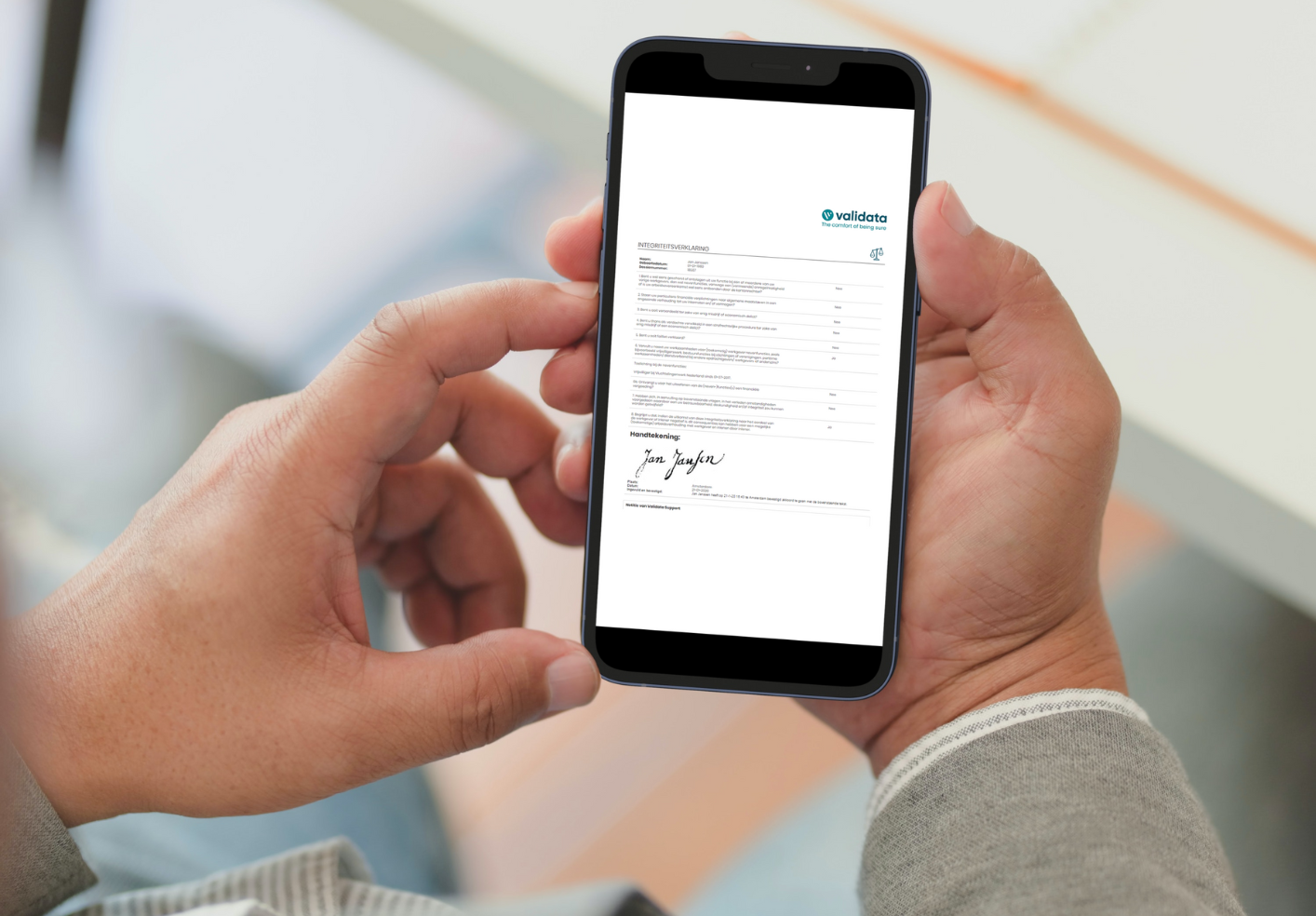Why is security so important during employment screening?
It is very important, because a screening software needs to process and verify confidential information (personal data). Security and privacy are central to Validata, which is why our software, Valluga, complies with all regulations regarding privacy and data protection.
If the company fails to comply with these, it can have unpleasant consequences:
- Discouraging candidates from being screened: If an organisation is unable to ensure a secure and transparent screening process, this may even discourage candidates from applying there.
- Large fines: If an organisation fails to comply with the GDPR, this could result in fines in the worst case scenario. These fines can be significantly high and can hit organisations really hard financially.
- Reputational damage: Failure to comply with the GDPR can lead to major reputational damage. Companies are less willing to engage with you, because your organisation has shown that they are not careful with personal data.

How do we ensure the security of our screening software?
- Privacy by design: We ensure that the requirements of the GDPR are already accounted for in the development of new processes and systems. By using privacy by design at an early stage, optimal security of personal data can be guaranteed from the start and organisations can be sure that they rely on an organisation that complies with the GDPR.
- Security by design: To guarantee our screening software’s security, Validata uses secure frameworks and continuously monitors and scans the application daily for vulnerabilities. As a result, the safe and precise in-house development team delivers a secure screening application hosted within the EU at a top-tier data centre. Additionally, it is periodically tested through penetration tests and ethical hackers by independent parties.
- Certified software: Validata is also ISO (27001 & 9001) and ISAE 3000 type 2 certified. This guarantees high quality management and information security.
How do we comply with the GDPR legislation?
GDPR proof refers to compliance with the General Data Protection Regulation (GDPR). This means that Valluga complies with the requirements of the GDPR. Validata processes certain personal data based on the instructions of the client, who is the data controller.
Nevertheless, as a data processor, Validata also has obligations under the GDPR. For example:
- Data processing agreements (DPA): these must be signed with each client. These include the basis of the data controller.
- Transparency: A company must clearly disclose what personal data is collected, why they collect it and how they handle it.
- Data minimisation: Only the data necessary to achieve a certain purpose should be collected.
- Data breaches: Data breaches should be reported to the data controller as soon as possible.
Validata has its own Privacy Counsel, a separate Data Protection Officer (DPO) and also a processing register.
Challenges in employment screening
- Time-consuming task to gather correct information
- Complicated to actually check documents and information
- Increasing laws and regulations around employment screening
- Higher risk of human errors
- Process often unclear and poorly secured
- Poor candidate experience
Benefits of the screening platform Valluga
- Validata takes care of everything
- Different screening profiles possible
- Process is digitised and automated
- Transparant process for client and candidate
- Both local and international checks via data partners
- Sub-reports and a completed screening report
- Valluga complies with all laws and regulations
Certified Screening Software
Valluga complies with all standards in the field of information security. The software is ISO (27001, 9001) certified and has an ISAE 3000 type 2 declaration. This confirms that Valluga meets strict international standards for information security and quality management.
What is the ISO 27001?
Developed by the International Organisation for Standardisation (ISO), ISO 27001 defines the requirements for establishing, implementing, maintaining and continuously improving an Information Security Management System (ISMS) within a company. Its purpose is to help organisations adopt a systematic and proactive approach to information security.
By meeting the high requirements of our ISMS, which is ISO 27001 certified, information security risks are better understood and identified.
How does a company meet the requirements of ISO 27001?
Information security risks are identified and these determine what measures are needed to control them.
Policies should be set up so that the organisation’s information security objectives can be achieved in a proper and secure way.
By implementing the established measures, all information is protected against identified risks.
Creating awareness and training staff on information security is important to reduce risks.
By having systematic and independent assessments audits check your organisation, it becomes immediately clear where there is room for improvement and what is already going well within the ISMS.
The ISMS must be monitored and evaluated to constantly improve information security and security risk management.
What is ISO 9001?
In addition to ISO 27001, the International Organisation for Standardisation (ISO) has also developed ISO 9001 and sets out the requirements for an effective quality management system (QMS). This standard helps organisations improve processes, increase customer satisfaction, and consistently deliver high-quality products or services. It is applicable to companies in all sectors, large and small, and is recognised worldwide as a standard for quality management.
How does a company meet the requirements of ISO 9001?
Certification requires an audit by an accredited body, which verifies that the organisation meets all the requirements of the standard.
Develop a deep understanding of customer needs and ensure that products/services meet those expectations.
Identifying, evaluating and controlling the quality of risks.
Setting up and managing clear processes and procedures within the organisation making it easier to optimise.
Continuous improvement through feedback and evaluations that respond to the points for improvement.
Through regular assessments, it becomes clear whether the QMS is functioning effectively and meets the requirements, or whether there are still areas for improvement.
Wat is ISEA 3000 type 2?
ISAE 3000 stands for International Standard on Assurance Engagements 3000. The statement is a control statement. With an ISAE 3000 type 2 report, you demonstrate that your company’s processes are safe and in order.
How does a company meet the requirements of the ISAE 3000?
This report can be used to provide clients with confidence that Validata has the right control over certain processes.
Identifying risks in operational or non-financial processes.
Setting up effective measures to manage risks.
Careful recording of processes, systems and controls.
An external auditor conducts a detailed assessment according to the guidelines.
After successful assessment, the auditor provides a report that demonstrates the reliability of the controls.
Neem contact op
"*" indicates required fields
Neem contact op
"*" indicates required fields
Neem contact op
"*" indicates required fields
Neem contact op
Neem contact op
Download de whitepaper
Download de whitepaper
Download de whitepaper
Download de whitepaper
Download de whitepaper
Download de whitepaper
Download the white paper
Download de whitepaper
Meld je hier aan
Neem contact op
"*" indicates required fields
"*" indicates required fields
"*" indicates required fields
<!– Calendly link widget begin –>
<link href=”https://assets.calendly.com/assets/external/widget.css” rel=”stylesheet”>
<script src=”https://assets.calendly.com/assets/external/widget.js” type=”text/javascript” async></script>
<a href=”” onclick=”Calendly.initPopupWidget({url: ‘https://calendly.com/basteeuwen/small-demo-validata’});return false;”>Schedule time with me</a>
<!– Calendly link widget end –>
"*" indicates required fields
 Switch region
Switch region 




